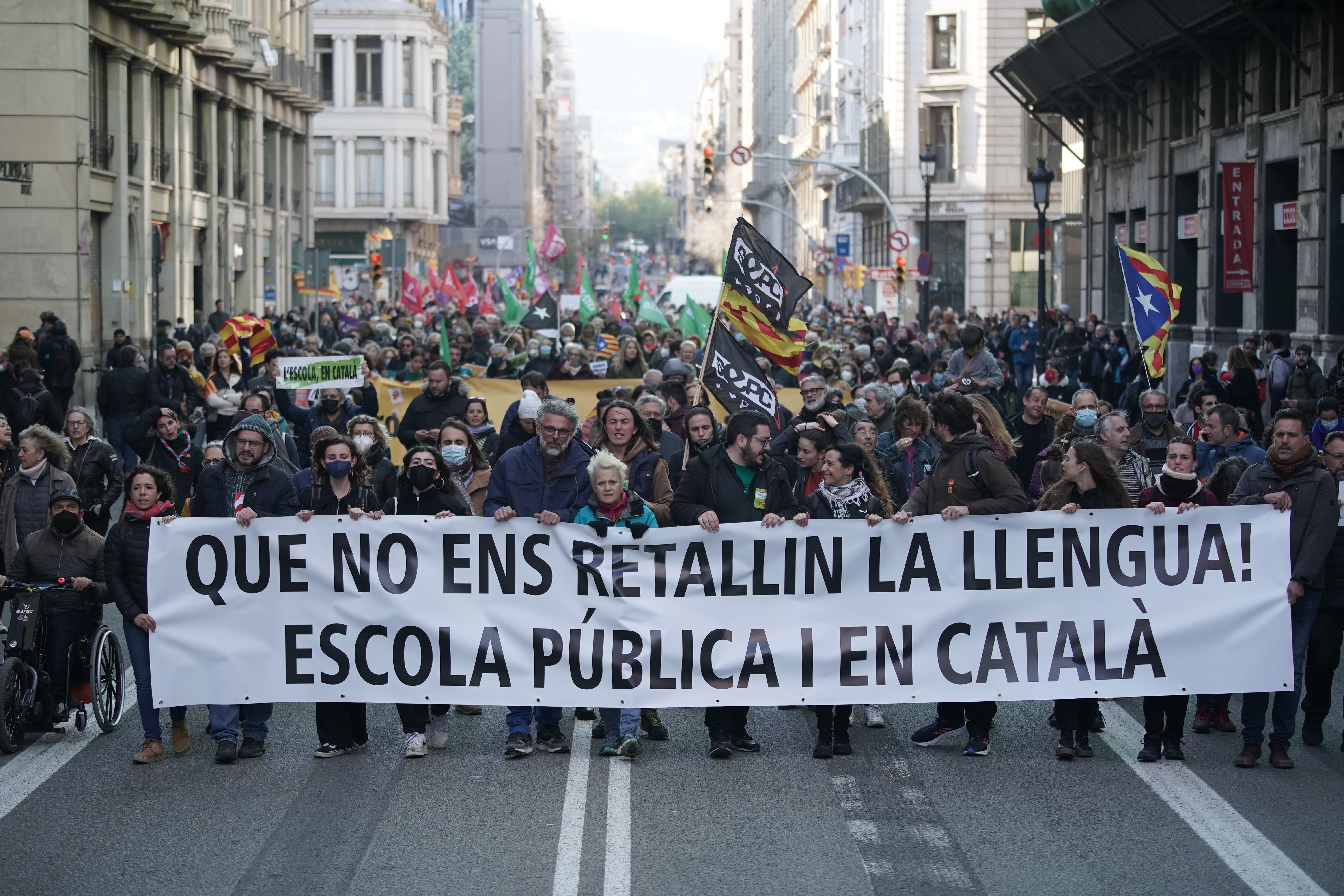The Catalonia High Court (TSJC) has rejected the appeal filed by the Catalan government to stop the ultimatum that the court itself gave to the education ministry to comply with its ruling imposing a 25% Spanish language quota in classrooms. The government appealed this ultimatum on the grounds that it was preparing new regulations, in reference to the decree that has already come into force that avoids setting language percentages and attributes the responsibility for school language policies to Catalan minister Josep Gonzàlez-Cambray. In two rulings, the court insists that Cambray must issue the "instructions, resolutions and circulars to teaching staff" to ensure compliance with the ruling requiring Spanish to be the vehicular language for 25% of classroom hours.
As soon as the court ultimatum arrived in May this year, Cambray announced that legal teams would file an appeal to reverse it and told schools that they would not have to make any changes to their educational models. He also severely criticised the new ultimatum issued by the TSJC, calling it "pedagogically and legally aberrant", also because it granted the status of legitimate appellant to the Assembly for a Bilingual School, the pressure group that demanded the forced execution of the ruling. In this regard, the Catalan government explained that this association had no legitimacy to demand enforcement.
In both rulings, the court confirms the execution of the ruling that it ordered at the request of the Assembly, and in the second it does the same with a decision that accepts the request of a parent of a school student, to whom the court also gave legitimacy to appear as a party affected in the proceedings. The court criticizes the Catalan government for alleging that the ruling violates the rights of students and teachers, but on the other hand, it "does not contribute to the argument" of why it considers students' and teachers' rights are being violated when "the aim is to ensure a minimum number of teaching hours in Spanish and Catalan in schools".
Hablamos Español yes, Òmnium and Plataforma no
In another procedure open at the Catalan High Court, it has admitted the association Hablamos Español as an affected party to request the execution of the sentence requiring the application of the 25% quota, while rejecting the appeal by leading Catalan cultural and pro-independence association, Òmnium Cultural, the linguistic NGO Plataforma per la Llengua, as well as the trade union Ustec, which had asked to enter the case. In writing, the court also explains that it has not admitted the anti-independence group Convivència Cívica Catalana to the case despite its request being grouped with that of Hablamos Español, because it considers that the former platform has statutes with "generic" purposes.
With the same reasoning, the court says that the statutes of Òmnium are generic in setting the goal of "the promotion, development and defence of the Catalan language and culture in all areas of science, arts, letters, thought and the media, in all sectors of society", because they do not mention education in particular. In the case of Plataforma per la Llengua and Ustec, the court does acknowledge that the promotion of Catalan in education is sufficiently enshrined in its statutes, but believes that the groups cannot be considered affected because "the use of Catalan as the vehicular language in the different teachings included in the educational system has not been the subject of a court ruling", but rather, the explicit part of the ruling relates to the Spanish language.
Government decree
In parallel with the presentation of the appeals, the Catalan government worked on the drafting of the decree which was approved by a special cabinet meeting on May 30th, and which will continue its processing through parliament next week, where it should be confirmed by MPs, although as a decree it has been in force since being published in the official gazette at the end of May. This decree emphasizes the "non-application of numerical parameters, proportions or percentages" on the use of the language and makes it clear that it is the Catalan education department and, ultimately, education minister Cambray, who holds responsibility for the language project of each centre, thus protecting the educational community from judicial action over the language issue.
The three parties of the Spanish right - the PP, Cs, and Vox - tried to torpedo the processing of the decree in Parliament by sending the measure to the Catalan constitutional body, the Council on Statutory Guarantees. This council issued its opinion this Monday, endorsing the text and assuring that the decree is not inconsistent with the Catalan Statute of Autonomy or the Spanish Constitution. In addition, it maintains that it is the Catalan government which is responsible for regulating the policy on the official languages - Catalan, Spanish and Aranese - and considers that imposing systems such as percentages - as the TSJC has done - are not the only viable alternative "at all" when it comes to regulating the use of these languages.

